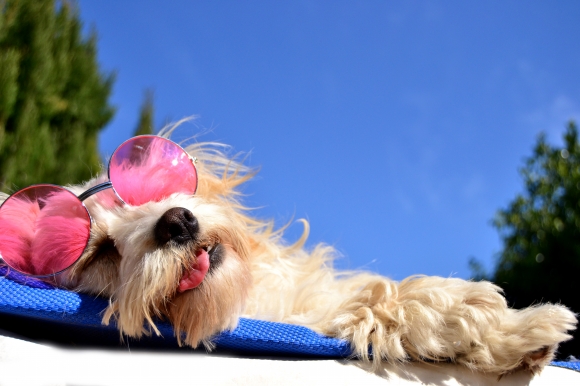


ASK US
Summer Pet Hazards
We all love spending the long, sunny days of summer outdoors with our pets, but summer brings some additional hazards to our furry companions. To prevent any unfortunate incidences, take these simple precautions:
Provide plenty of water and shade. Pets can get dehydrated quickly, so give them plenty of fresh, clean water when it’s hot or humid outdoors. Make sure your pets have a shady place to get out of the sun and keep them indoors when it’s extremely hot.
Know the signs of pets overheating.
- Excessive panting
- Salivating
- Staggering while walking / disorientation
- Seizures
- High body temperature (A dog’s normal temperature is 100.4 – 102.5 F)
- Tongue that is an abnormal color (dark, bright red, muddy, or pale)
- Sticky or dry gums / dehydration
- Bloody vomiting, diarrhea or stool
- Vomiting
- Collapse
- High heart rate

Never leave your pet in the car. Not only is leaving your pet in the car very dangerous, it is illegal in 16 states that have specific “hot car” laws.
Never shave your dog. A pet’s coat is naturally designed to keep your pet cool during the summer months, and warm in the winter months. If your pet naturally has short hair, apply sunscreen to protect from sunburn. Also, be sure that any sunscreen product you use on your pets is labeled specifically for use on animals.
Avoid exercise during high temperatures. On particularly hot days, exercise your pets outdoors in the morning or at night when it is cooler. Your pet’s body can heat up quickly, and sensitive paw pads can burn.
Use flea and tick prevention and Heartworm prevention. All of these can impact the health of your pet. By consistently working to prevent them, pet owners can help their cats and dogs avoid discomfort, skin infections, and diseases. Not only do preventions work to keep your pets happy and healthy, but these preventative measures also help keep your home and family safe from exposure.
Beware of toxins. Commonly used rodenticides and lawn and garden insecticides can be harmful to cats and dogs if ingested, so keep them out of reach. Keep citronella candles, tiki torch products and insect coils of out pets’ reach as well.
Never use fireworks around pets. Exposure to lit fireworks can potentially result in burns or trauma, and even unused fireworks can contain hazardous materials. Many pets are also fearful of loud noises and can become lost, scared or disoriented, so it’s best to keep your fur companions safe from the noise in a quiet, sheltered and escape-proof area of your home.
If you follow these few simple tips your pet should have a great summer!



